The Sun, which thrilled to the acquittal of its journalists charged with paying public sector workers for stories under headlines mocking the "Clown Prosecution Service" and "Crown Persecution Service", gave the Coulson verdict four pars in a corner of page 8.
The Mail, equally strident in its criticisms of the prosecution of journalists in England, speculated on whether Coulson might tell all in a book not that the last of his court cases is behind him.
Yet this was the one case that justified the question "Why did this ever go to trial?"
An estimated £2m of taxpayers' money was spent on bringing a case where a central element required to secure a conviction was missing from the word go.
Everybody got so excited by the idea that Coulson must have been lying when he told a court that he knew nothing about phone hacking that they lost sight of the fact that, to count as perjury, a lie has to have some bearing on the verdict.
So all that apparently damning evidence from Neville Thurlbeck, James Weatherup and Clive Goodman meant nothing.
It's one thing for barrack-room lawyers (and even journalists) to stroke their beards and pronounce on the basis of surmise and assumption, but the prosecutors in Scotland are supposed to be the real thing. They are paid to know the law.
Yet it was almost as though they couldn't bear to be left out of the feeding frenzy that followed the hacking scandal. This really was a shameful waste of public money and manpower.
Sheridan sued for libel over the original article and a series of follow-ups. The News of the World mounted a defence of justification and produced a string of witnesses to support its claims. Their evidence provided a string of splashes for the Scottish tabloids (above), but Sheridan denounced them all. Having sacked his legal team, he delivered an impassioned closing speech:
From four in a bed to five in a bed. From five in a bed to sex clubs. From sex clubs to champagne. From champagne to cocaine. From cocaine to orgies in a hotel slap bang in the middle of Glasgow.
The allegations have been as numerous as grains of sand in the Sahara Desert but evidence, but real tangible, substantial evidence, has been conspicuous by its absence.
I am a socialist politician who believes he has a reputation for honesty, integrity and hard work...I am not about to allow that reputation to be destroyed by a newspaper and the multibillion-pound empire it is attached to.
I stand accused of being a hypocrite, an adulterer, a liar and an abuser of power. In reality, this marathon case has proved nothing of the sort.
The News of the World didn't just go away and lick its wounds. It appealed against the verdict and also continued to work on the original story. In 2006 its Scottish Editor, Bob Bird, was approached by Sheridan's best man, George McNeilage. McNeilage had made a video in which Sheridan admitted visiting the club and also that he had confessed to members of the SSP executive at the meeting at which he was asked to step down. The newspaper paid £200,000 for the tape.
Conducting his own defence, he maintained that he had not lied in the libel case and claimed that he had been the victim of a conspiracy involving members of the SSP, the News of the World and the police. The court heard that Sheridan's name had appeared on the hacking private investigator Glenn Mulcaire's notes - although there was no evidence that his voicemails had been intercepted.
Bird and the paper's Scottish news editor Douglas Wright were called as witnesses and challenged by Sheridan about rampant phone-hacking at Wapping. [This case was being heard before the scandal blew open with the Milly Dowler story in July 2011, but after former News of the World reporter Sean Hoare had spoken at length about the practice to the New York Times and two years after Mulcaire and Clive Goodman had served prison sentences for intercepting Prince William's voicemail.]
Both journalists denied believing that their newspaper was above the law or that it had paid people for illegal activities.
Andy Coulson, called as a defence witness, also denied having been aware of phone-hacking at the paper before the Mulcaire-Goodman convictions.
There was no evidence, Prentice said, that Sheridan's voicemail had been accessed illegally or that the McNeilage tape had been produced using illegal means.
In his summing up, Sheridan said that he had called Coulson to the witness box not because he would help his case, but out of a sense of responsibility for standards in public life; so that he could hold him to account.
Since both sides in the 2010 case declared the Coulson evidence irrelevant, regardless of whether it was true or false, it is hard see how there was any prospect of success for a subsequent prosecution that would have to prove both that Coulson lied and that his lying might have had an impact on the Sheridan verdict.
With the acquittal of Coulson and the dropping of charges against Bird and Wright, Operation Rubicon - the Scottish wing of the hacking fall-out investigations - has now been closed.
SubScribe agrees with Coulson that the case was a waste of public money and disagrees strongly with Sheridan's demands for a public inquiry (more expense?)
As to which of the two is less convincing is a tougher call, but you can only look in wonder at the former spin-doctor and convicted criminal with the chutzpah to stand outside the court on Wednesday and say outright: "I did not lie."
In print, the Times's Scottish team did an excellent job with a spread (above) that ran all editions. Reporter Mike Wade was on the button when he homed in on Judge Burns's ruling "not every lie amounts to perjury" - though one feels that the sub may turn out to have been premature with the headline saying that those six words put an end to the Sheridan affair.
The Times and Telegraph both took the opportunity to run leaders about Establishment threats to a free Press. Yes, it's self-pleading. But it does matter.
Sheridan was found guilty of perjury, sentenced to three years and served a year in prison. He was refused permission to appeal, but last year succeeded in getting his case reviewed by the Scottish Criminal Cases Review Commission. The commission said last month that it was not prepared to refer the case back to the High Court on the evidence provided, but Sheridan still has time to submit more material before a final decision was made.
James Doleman blogged the trial and you can read his reports here.
He also live-tweeted the Coulson perjury trial, thanks to crowd-funding, and you can follow him on Twitter here.

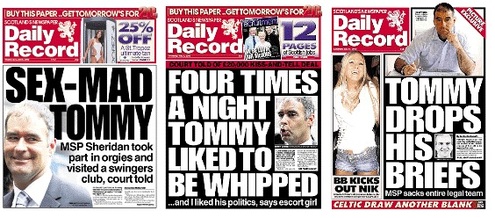

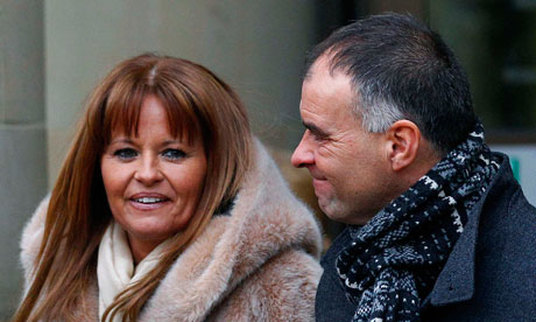
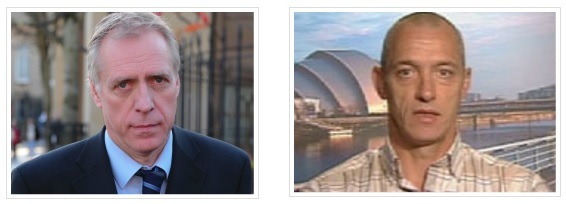
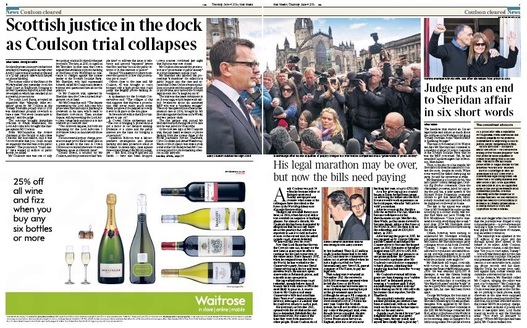
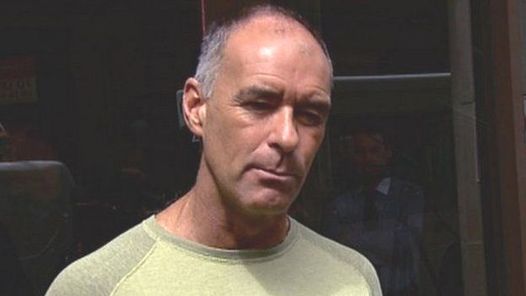

 RSS Feed
RSS Feed


